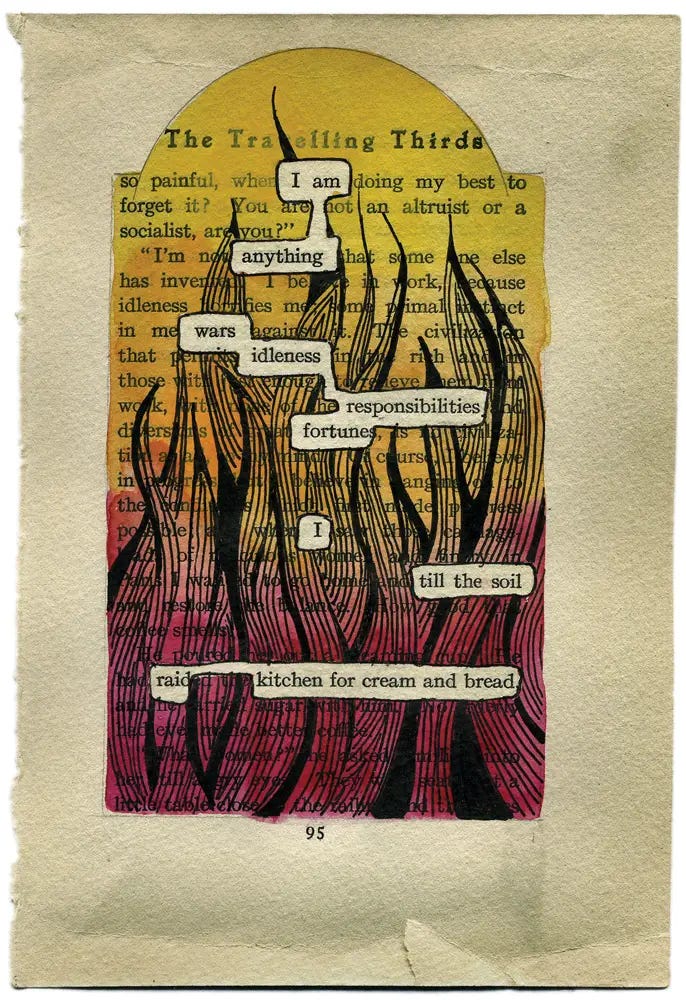So I’m a fan of found poetry, which you already may have gathered from this post (bookstores!), or maybe this one (cento!). The alchemy of already-written meaning with fresh perspective always surprises me; the newness it turns into becomes more than the sum of its parts.

But a twist: sometimes, I compose found poems from the text of my own essays. Then the result is a distillation—also surprising, but now honed-in, doubled-down, a light shined into a particular crevice that needed more exposure to the sun. Here’s a poem drawn from my Charles Dickens Christmas essay:
Dark Matters
Chimneys and spirits correspond with
London’s poorest child
It’s hard to get left out, all the
carols and quadrilles
for the upper classes who
aren’t worn to death
Heighten the sentiment:
“Keep Christmas” Dickens says
with Irving (Who was the original
Santa? St. Nick or Present’s Ghost,
Tiny Tim or Scrooge?)
Does it matter? There are
only the chimneys
They are either dark or bright
Yep. That’s not only what the essay is about, but, more significantly, what A Christmas Carol is about. Getting to the core of things with words feels really good.
What about you? Do you write found poetry? Have you ever tried it on your own prose writing?
More on found poetry here.
This is a favorite book of found poems by one of my favorite writers: Mornings Like This by Annie Dillard
While we’re at, I’ll recommend an essay by Dillard that is sort of about Santa. It, too, is more than the sum of its parts. If you’re able to get hold of her collection Teaching a Stone to Talk, read “God in the Doorway.” I think a found poem based on it would be stunning.
Go forth to find meaning in words on the page (maybe your own!)—and remember to hold light in tandem with the dark. It’s the only way to really see people; I agree with Dickens on that.




